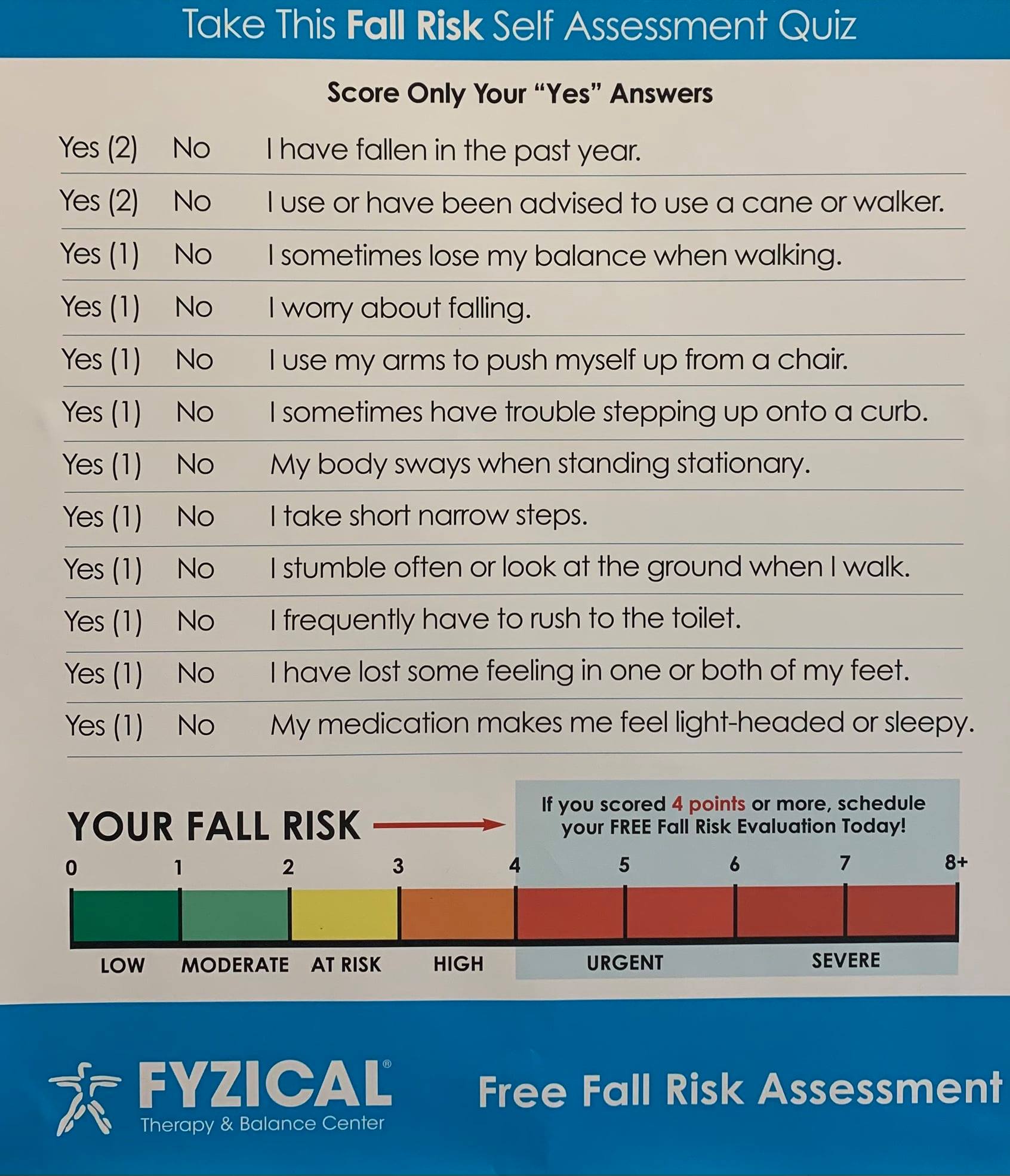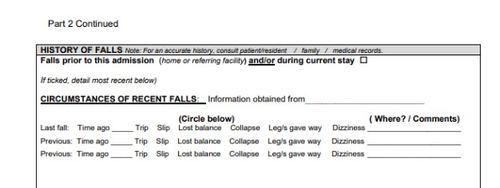Dementia Fall Risk Fundamentals Explained
Table of ContentsThe Main Principles Of Dementia Fall Risk Dementia Fall Risk for BeginnersSome Known Details About Dementia Fall Risk Not known Factual Statements About Dementia Fall Risk Our Dementia Fall Risk PDFs
The FRAT has 3 areas: drop danger status, danger variable checklist, and action strategy. An Autumn Threat Standing consists of information about background of current falls, drugs, emotional and cognitive condition of the patient - Dementia Fall Risk.If the person ratings on a risk element, the matching variety of points are counted to the client's loss danger score in the box to the far ideal. If a person's loss danger rating totals five or higher, the individual goes to high threat for falls. If the patient scores only 4 factors or reduced, they are still at some threat of falling, and the registered nurse must utilize their finest professional assessment to manage all loss danger variables as component of an all natural care strategy.
These basic techniques, in basic, help create a risk-free environment that reduces accidental drops and defines core preventative actions for all people. Indications are vital for clients at danger for falls.
6 Simple Techniques For Dementia Fall Risk
For instance, wristbands need to include the person's last and given name, date of birth, and NHS number in the UK. Information should be printed/written in black versus a white history. Just red shade ought to be used to signify unique client status. These suggestions follow current developments in person identification (Sevdalis et al., 2009).
Things that are also far may require the individual to get to out or ambulate needlessly and can possibly be a threat or contribute to falls. Helps prevent the patient from heading out of bed with no aid. Registered nurses respond to fallers' phone call lights quicker than they do to lights launched by non-fallers.
Visual disability can significantly trigger drops. Keeping the beds closer to the flooring minimizes the risk of drops and serious injury. Putting the mattress on the flooring significantly decreases loss danger in some medical care settings.
Not known Facts About Dementia Fall Risk
People who are tall and with weak leg muscular tissues who try to rest on the bed from a standing placement are likely to fall onto the bed due to the fact that it's as well low for them to decrease themselves safely. Additionally, if a high client attempts to rise from a reduced bed without support, the individual is most likely to drop back down onto the bed or miss the bed and drop onto the flooring.
They're made to advertise prompt rescue, not to protect against drops from bed. Apart from bed alarms, increased guidance for risky clients likewise might aid avoid falls.

Patients with a shuffling gait boost fall possibilities drastically. To lower loss danger, footwear should be with a little to no heel, thin soles with slip-resistant walk, and sustain the ankle joints.
Dementia Fall Risk Can Be Fun For Anyone
Patients, specifically older adults, have actually decreased visual capacity. Lighting a strange atmosphere aids Clicking Here raise visibility if the patient need to get up during the night. In a study, homes with appropriate illumination report fewer falls (Ramulu et al., 2021). Enhancement in lighting at home may reduce fall prices in older adults (Dementia Fall Risk). The usage of stride belts by all healthcare providers can promote security when assisting clients with transfers from bed to chair.

Sitters are efficient for ensuring a secure, safeguarded, and safe atmosphere. Research studies demonstrated very low-certainty evidence that caretakers minimize autumn threat in severe treatment hospitals and only moderate-certainty that choices like video tracking can decrease sitter usage without increasing loss risk, recommending that sitters are not as helpful as originally believed (Greely et al., 2020).
The smart Trick of Dementia Fall Risk That Nobody is Talking About
-copy-5.jpg)
Enhanced physical conditioning minimizes the threat for falls and restricts injury that is suffered when Bonuses autumn takes place. Land and water-based workout programs may be in a similar way helpful on balance and gait and therefore reduce the danger for falls. Water workout may contribute a favorable benefit on equilibrium and gait for women 65 years and older.
Chair Rise Exercise is a simple sit-to-stand exercise that aids strengthen the muscles in the upper legs and buttocks and improves wheelchair and independence. The goal is to do Chair Increase exercises without utilizing hands as the customer becomes stronger. See sources area for a detailed direction on just how to execute Chair Increase exercise.